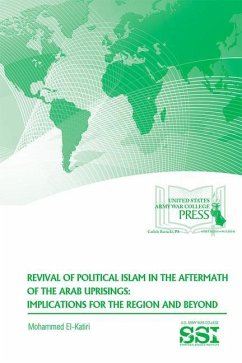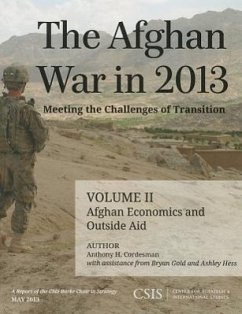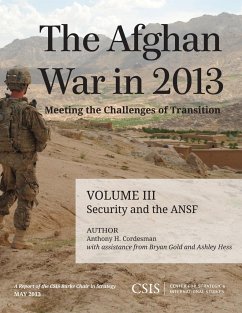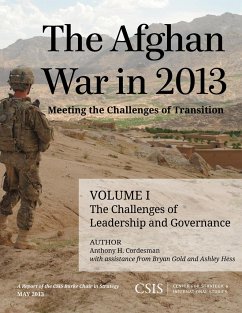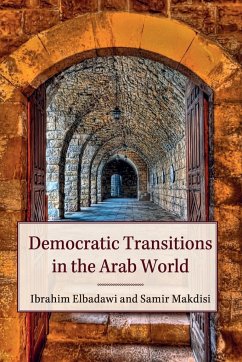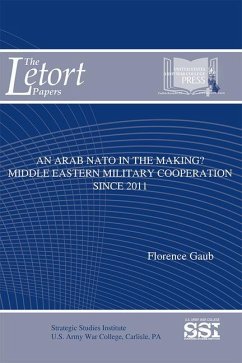
Maneuvering the Islamist-Secularist Divide in the Arab World: How the United States Can Preserve Its Interests and Values in an Increasingly Polarized
Versandkostenfrei!
Versandfertig in über 4 Wochen
11,99 €
inkl. MwSt.

PAYBACK Punkte
6 °P sammeln!
This monograph examines the Islamist-secular divide in Arab countries, particularly in Egypt and Tunisia, and why it has become so intense and polarizing. It demonstrates that having Islamist parties in power or in domineering positions in Arab societies often provokes a backlash from secular elements because the latter see the Islamists as threatening to their social freedoms. For countries beginning the transitory process from authoritarianism to democracy, the monograph recommends that the United States press for a broad governing coalition and a delay in holding elections, which would allo...
This monograph examines the Islamist-secular divide in Arab countries, particularly in Egypt and Tunisia, and why it has become so intense and polarizing. It demonstrates that having Islamist parties in power or in domineering positions in Arab societies often provokes a backlash from secular elements because the latter see the Islamists as threatening to their social freedoms. For countries beginning the transitory process from authoritarianism to democracy, the monograph recommends that the United States press for a broad governing coalition and a delay in holding elections, which would allow secular-liberal forces the opportunity to build their political parties and compete with Islamist parties. For Arab countries already facing polarization, the United States should be consistent on human rights, help to build up institutions (such as parliaments) as a hedge against authoritarian presidents, and press for inclusionary politics. In addition, the monograph recommends that U.S. Army officers should reinforce to their Arab military counterparts the value and necessity of concentrating on genuine external and internal terrorist threats, as opposed to being used as a coercive internal force that favors exclusionary politics. Other products pertaining to this topic include: Al-Qaeda: The Many Faces of an Islamist Extremist Threat, Report, June 2006 can be found at this link: http: //bookstore.gpo.gov/products/sku/052-070-07483-3 American Foreign Policy: Regional Perspectives; Proceedings, A Workshop Sponsored by the William B. Ruger Chair of National Security Economics, Newport, Rhode Island, 13-15 May 2009 can be found at this link: http: //bookstore.gpo.gov/products/sku/008-020-01594-6 Global Legal Challenges: Command of the Commons, Strategic Communications and Natural Disasters (Hardcover) can be found at this link: http: //bookstore.gpo.gov/products/sku/008-046-00244-4 The Saudi-Iranian Rivalry and the Future of Middle East Security can be found at this link: http: //bookstore.gpo.gov/products/sku/008-000-01076-5 Russia\'s Counterinsurgency in North Caucasus: Performance and Consequences: The Strategic Threat of Religious Extremism and Moscow's Response can be found at this link: http: //bookstore.gpo.gov/products/sku/008-000-01083-8



